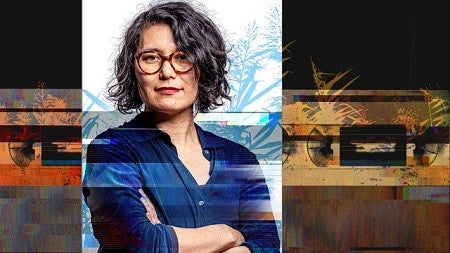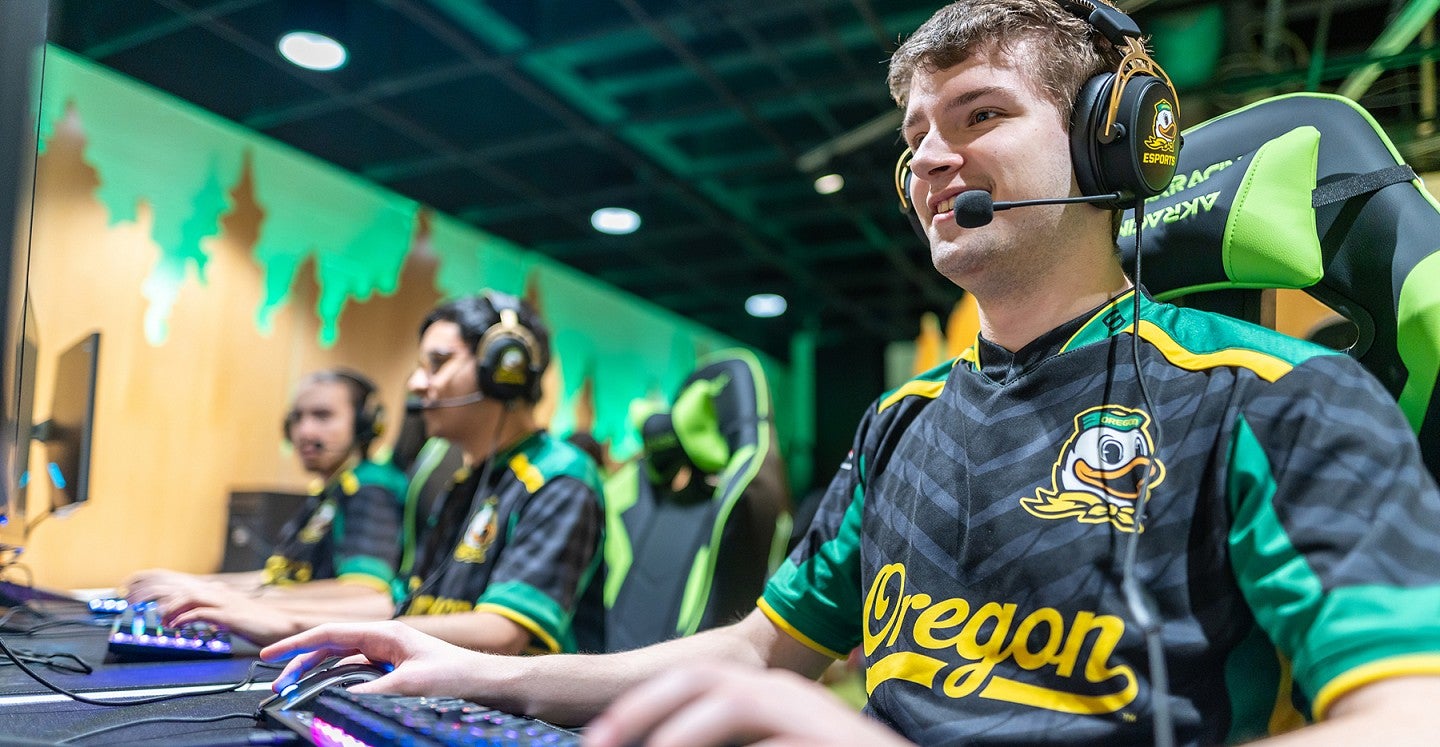
Game On: Five Sides to UO Esports
The University of Oregon and other campuses are upping their game to meet student demand for competitive video gaming
2 min read
If your idea of video games is a deadbeat geek zoning out in a dreary dorm room, think again.
Competitive gaming or “esports” is a booming, billion-dollar industry. The University of Oregon and other campuses are upping their game to meet student demand, so here’s a primer to help you plug in:
1
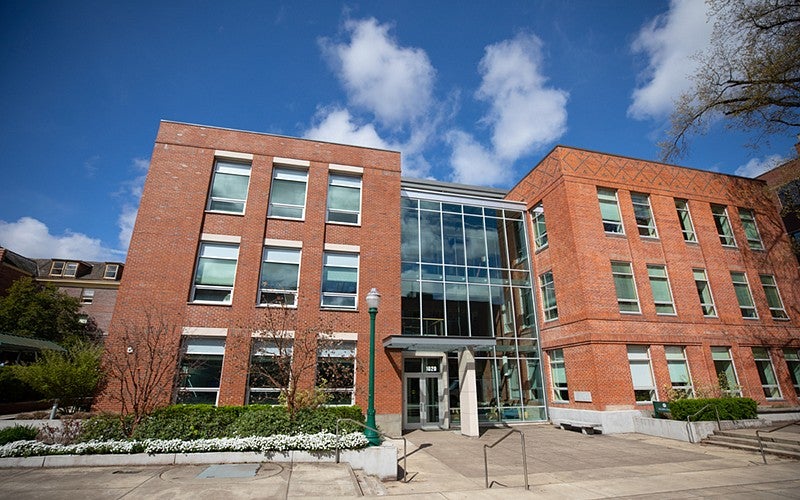
The School of Journalism and Communication and the Lundquist College of Business now have credit courses covering esports. Students are learning broadcasting by calling games, they’re taking sports marketing classes on the industry, and they’re exploring careers through UO workshops.
2
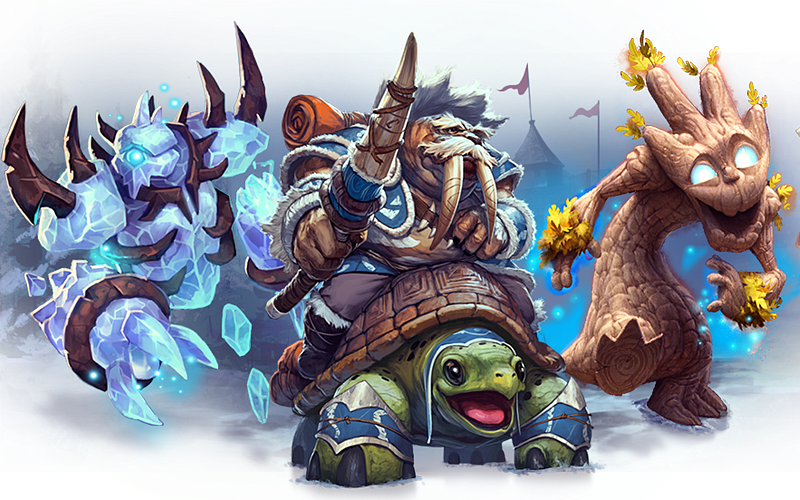
UO Esports—which welcomes the casual gamer—also houses varsity teams that play League of Legends, Overwatch, Rocket League, Call of Duty, and Hearthstone. In fact, the UO won a national championship in Hearthstone, a card game based on characters with various powers.
3
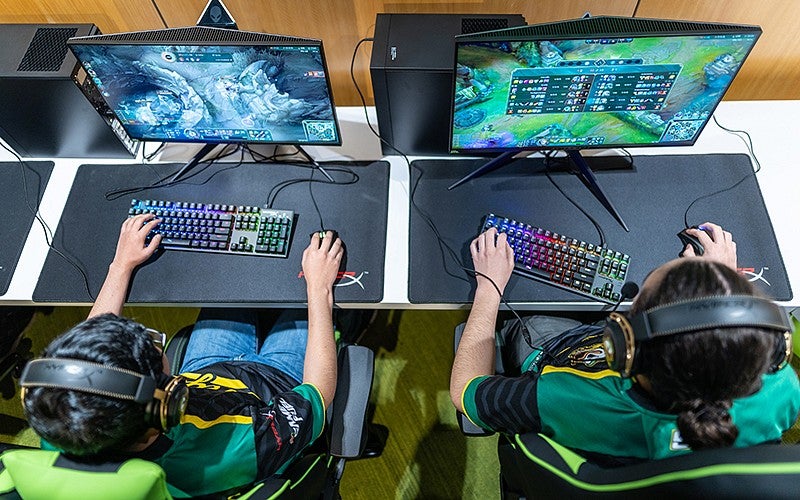
The new Esports Lounge, a 1,100-square-foot room in the EMU with high-speed computers and customized chairs, will be open to the general public after the COVID-19 restrictions are lifted. That’s where to watch the varsity teams practice and play. “There are, unfortunately, sometimes negative stigmas about what a gamer is, and we’re shattering those left and right,” says UO Esports Director David Gugliotti, MBA ’19 (sports marketing), who has driven the program’s growth at the UO. “And it gives people who maybe don’t have a community something to attach to.”.
4
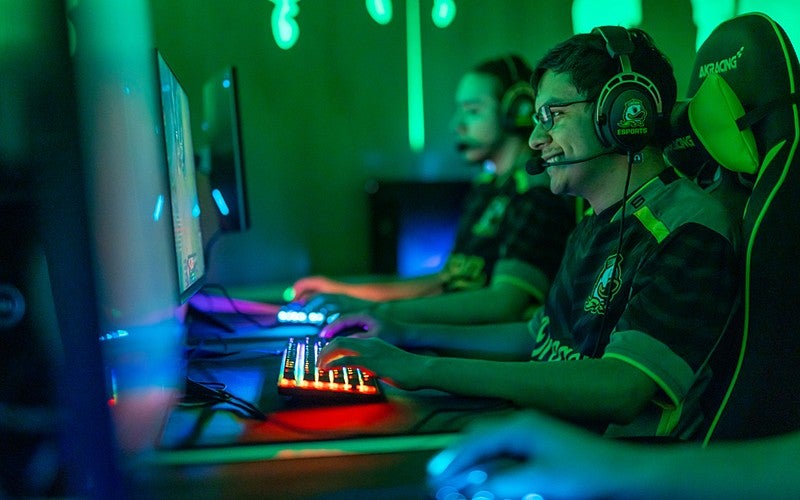
Top gamers nationally pull down as much as $7 million annually in winnings and sponsorships. Fans tune in on mainstream networks such as ESPN and fill arenas to watch contests, where the action is called by high-profile announcers including former Ducks star Jordan Kent.
5
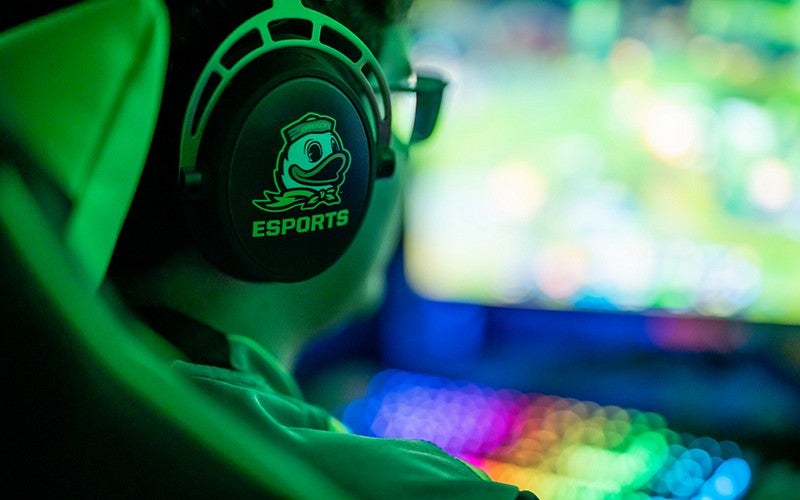
UO faculty members are examining the esports phenomenon. Amanda Cote, an assistant professor of media and game studies in the journalism school, says video games matter “for the same reason that all representation matters. Representation tells us who we are and who we could be, or how we should be or could be imagining the world around us.”




